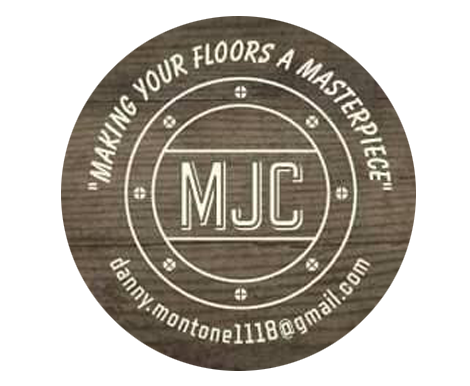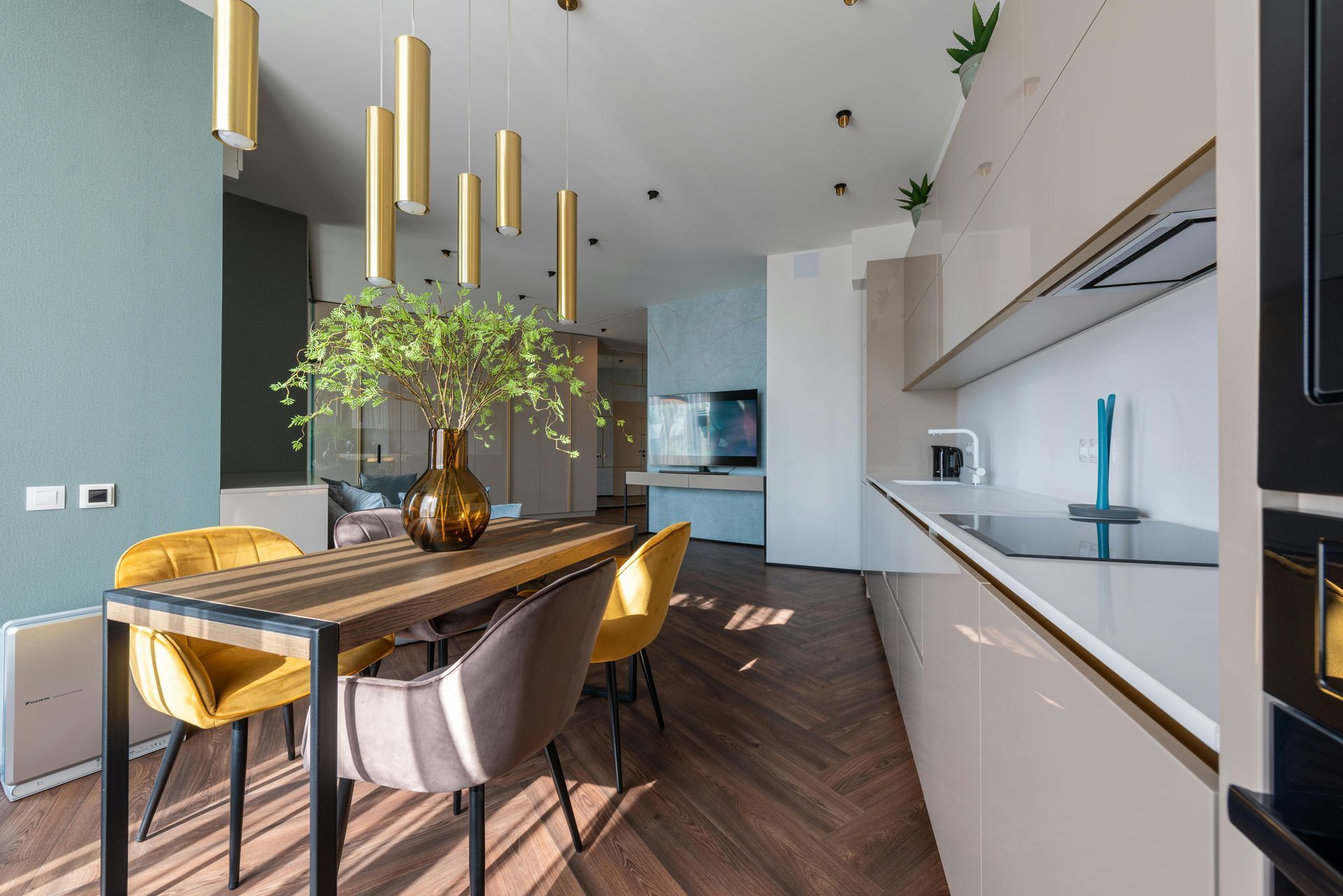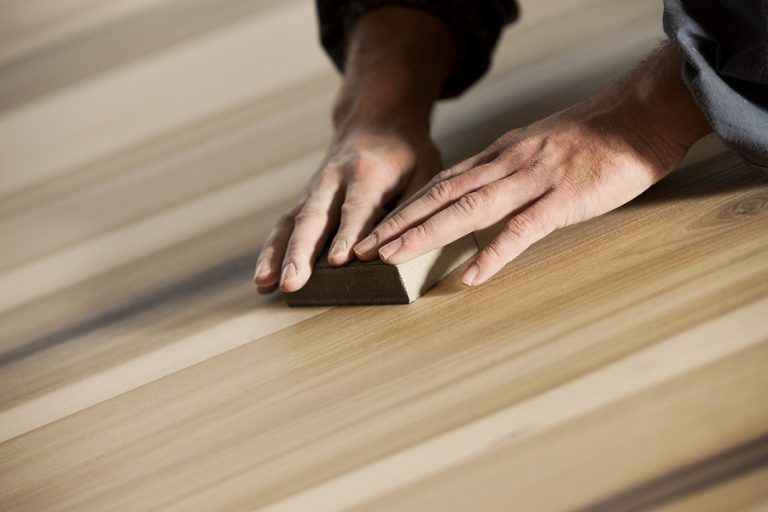What’s the Best Way to Repair Water Damage on Hardwood Floors?
Water and hardwood floors—two things that shouldn’t mix. But accidents happen, whether it's a spilled drink, a leaky roof, or an unexpected plumbing issue. If you’re staring at unsightly warping, stains, or buckling on your beautiful hardwood floors, don't panic. This guide will walk you through the best methods to repair water damage on hardwood floors when to DIY, and when to call in the pros.
Understanding Water Damage on Hardwood Floors
Water damage can vary in severity, from light surface damage to deep structural issues that threaten the integrity of your floors. Hardwood floors are particularly vulnerable because they are porous. When water seeps in, the wood can expand, contract, warp, and even develop mold.
Signs of Water Damage:
- Warping or buckling boards
- Stains or discoloration
- Cupping (edges raised while the center stays flat)
- Musty odors
- Loose or creaky boards
Once you spot any of these signs, it’s time to take action. The longer water damage sits untreated, the worse (and more expensive) it becomes to repair.
Step-by-Step: How to Repair Water Damage on Hardwood Floors
1. Assess the Damage First
Before grabbing a tool, evaluate the extent of the water damage. Is it a small spill, or did a pipe burst and flood half the room? If the damage is extensive and you suspect structural issues beneath the floor, you might need professional help.
If it’s a smaller area, you may be able to handle the repairs yourself. Here’s what you should check for:
- Surface Stains: Can often be sanded and refinished.
- Cupping or Crowning: The wood has absorbed water unevenly, causing it to warp.
- Buckling: The boards have lifted off the subfloor entirely—this is a bigger issue that likely needs professional attention.
2. Dry Out the Floor
Once you’ve assessed the damage, drying out the area is the next step. Hardwood floors need to be dried properly to prevent mold and further damage.
Here’s how to dry out your hardwood floor:
- Use a wet/dry vacuum to remove any standing water.
- Set up fans and dehumidifiers to remove moisture from the air and speed up drying.
- If possible, remove the affected boards to allow air circulation to the subfloor.
- Keep the temperature regulated in the room to avoid further expansion or contraction of the wood.
Drying time can vary depending on the severity of the water exposure, so patience is key.
How to Fix Minor Surface Water Damage on Hardwood Floors
1. Sanding the Surface
Minor water damage, like surface stains or slight discoloration, can often be fixed by sanding. Sanding removes the top layer of damaged wood, leaving you with a fresh surface to refinish.
Steps for sanding your hardwood floor:
- Start with a coarse-grit sandpaper and work your way up to a finer grit.
- Use a drum sander or hand sander, depending on the size of the damaged area.
- Be sure to sand evenly to avoid low spots in the floor.
- Once sanded, clean the dust thoroughly with a vacuum and tack cloth.
2. Refinishing the Floor
After sanding, you’ll need to refinish the hardwood to restore its luster and protect it from future damage. Here’s how:
- Choose the right stain or finish that matches your existing floor. Test it on a small, hidden area first.
- Apply the stain or finish with a clean brush or roller in even strokes. Let each coat dry thoroughly before applying the next.
- Seal the floor with a polyurethane sealer for added protection.
Pro Tip: If you’re not sure which finish to use, oil-based finishes offer better protection against future water damage, while water-based finishes dry faster.
How to Repair Major Water Damage on Hardwood Floors
If your hardwood floor is warped, buckled, or moldy, more drastic measures are needed. You may need to remove and replace sections of the floor.
1. Removing Damaged Boards
- Start by carefully prying up the affected boards. Use a crowbar or flooring tool to avoid damaging adjacent areas.
- Inspect the subfloor for moisture or mold. If you find mold, you may need to replace part of the subfloor as well.
- Let the area dry out completely before moving on to repairs.
2. Installing New Boards
- Measure and cut replacement boards to match the existing floor.
- Nail or glue the boards in place, ensuring a tight fit with the rest of the floor.
- Once installed, sand and refinish the new boards to match the surrounding area.
Pro Tip: If you’re unable to find a perfect match for your floorboards, staining or refinishing the entire floor can help blend the new boards with the old ones.
Preventing Future Water Damage on Hardwood Floors
Prevention is the best cure. Once you’ve repaired your water-damaged hardwood floor, take steps to prevent it from happening again. Here are some tips to keep your floors safe:
- Use area rugs in high-traffic areas or rooms prone to spills, like the kitchen or dining room.
- Place mats at entrances to catch dirt and moisture from shoes.
- Fix leaks immediately to prevent water from seeping into the wood.
- Maintain humidity levels in your home to avoid wood expansion and contraction.
When to Call a Professional for Water-Damaged Hardwood Floors
There are times when water damage is just too severe for DIY repairs. If you’re dealing with:
- Extensive buckling or warping
- Mold growth
- Damage to a large area of the floor
- Hidden moisture beneath the surface
…it’s time to call a professional hardwood floor repair service.
Call MJC Floor Finishing for Professional Hardwood Floor Repair in Philadelphia, PA
If your water-damaged hardwood floor has you feeling overwhelmed, don't worry—you don't have to go it alone. At MJC Floor Finishing, we specialize in restoring, resurfacing, and refinishing hardwood floors, even after water damage has set in. Our experienced team will assess the damage and provide a tailored repair solution that brings your floors back to life.
Don't let water damage ruin the beauty of your hardwood floors. Contact MJC Floor Finishing at
(267) 622-1455 for
professional hardwood floor repair services in Philadelphia, PA, and the surrounding areas. We also offer services such as
hardwood resurfacing,
refinishing, and
installation
to ensure your floors look their best for years to come.
FAQs
How long does it take for water damage to show on hardwood floors?
Water damage can start to show within 24 to 48 hours. However, more severe issues like warping or mold can take longer to appear.
Can I fix water-damaged hardwood floors myself?
Minor water damage can be repaired with sanding and refinishing, but major issues like warping or buckling usually require professional help.
Will insurance cover water damage to hardwood floors?
It depends on your policy and the cause of the damage. Many homeowners' insurance policies cover water damage caused by sudden events, like a burst pipe, but may not cover gradual damage.
How can I prevent water damage to hardwood floors in the future?
Place rugs in high-risk areas, maintain humidity levels, and address any leaks or spills immediately to prevent water damage.
Can water damage cause mold under hardwood floors?
Yes, water trapped under hardwood floors can lead to mold growth, which is why it's crucial to dry out the area thoroughly.
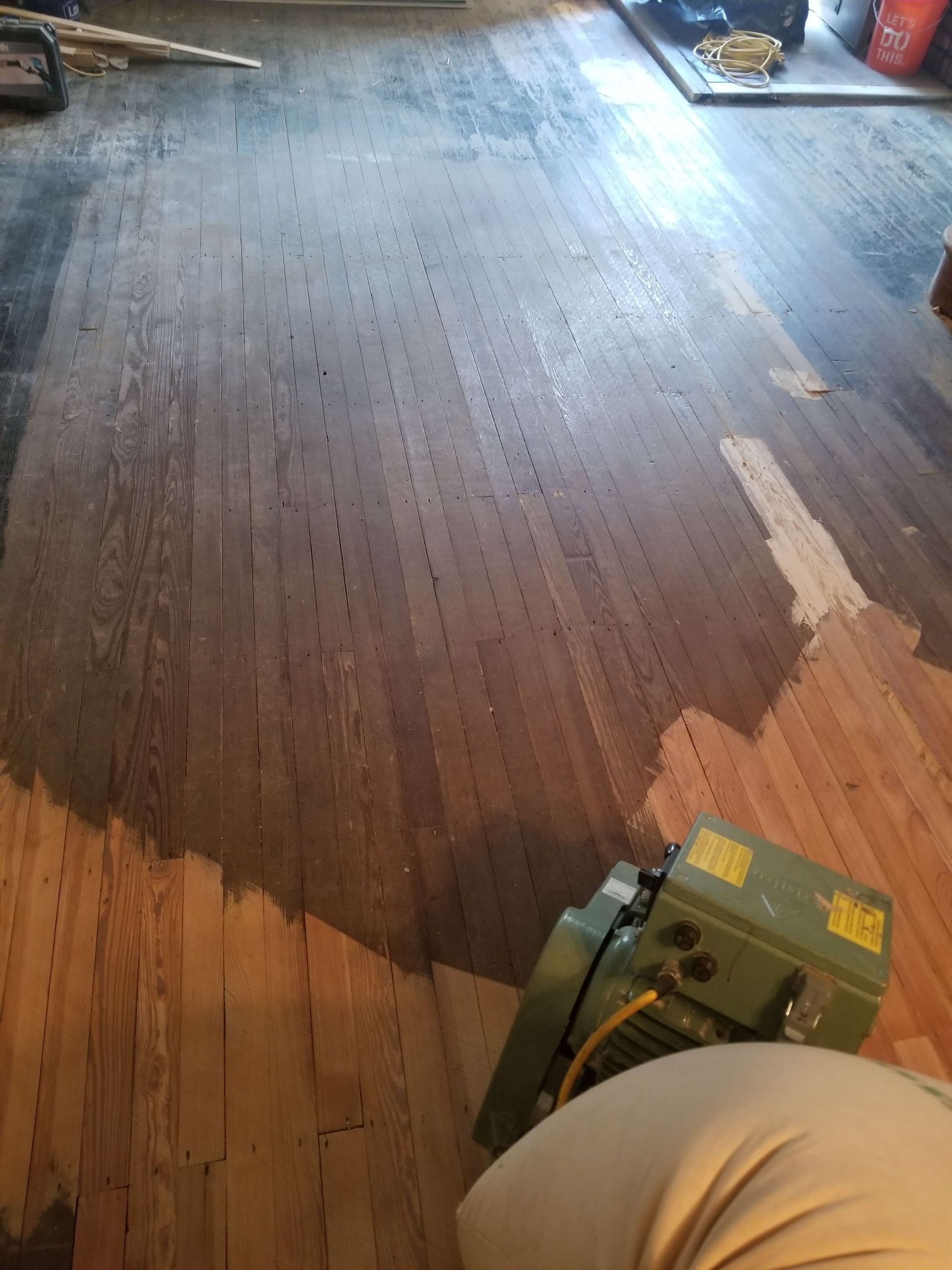
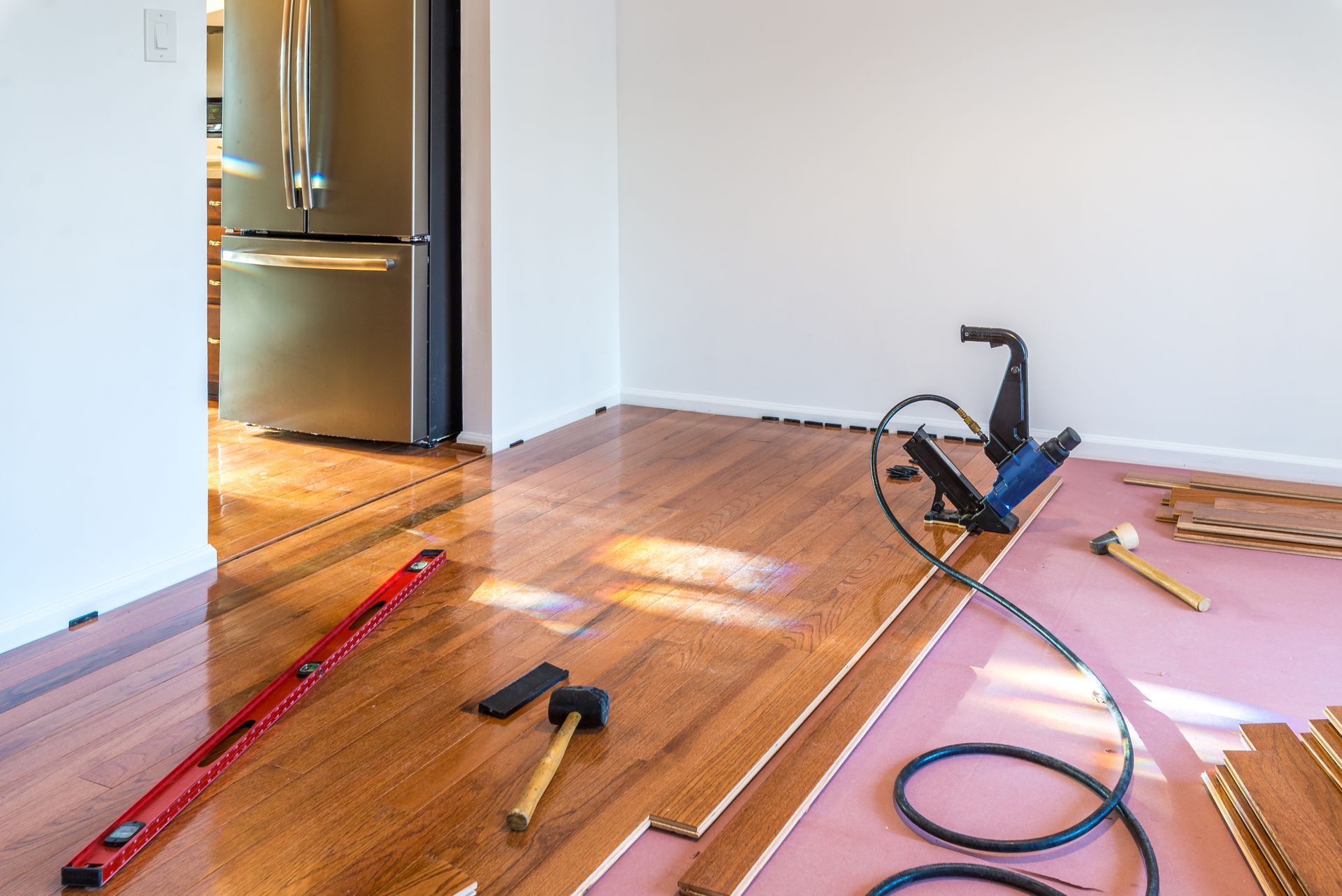
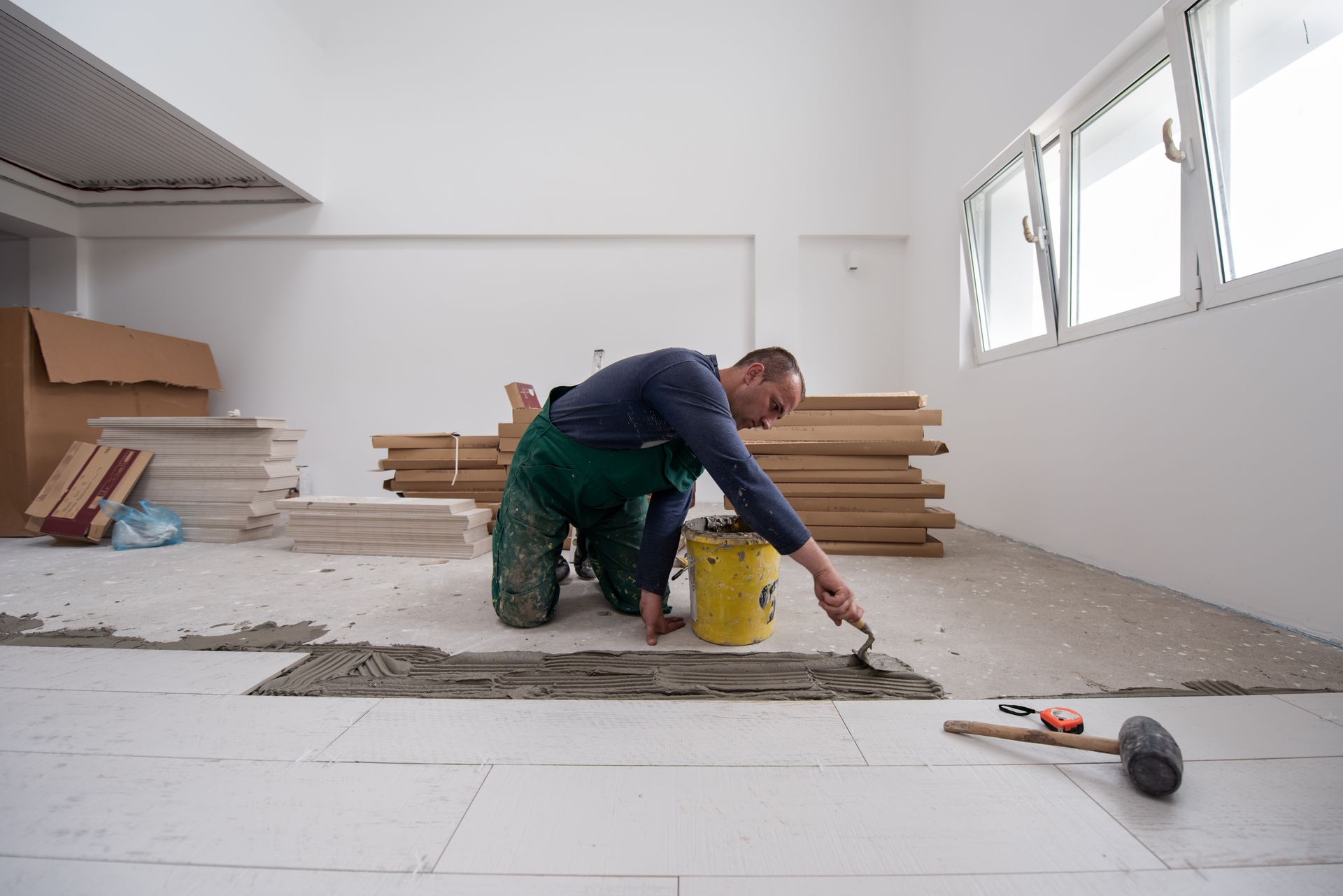
Our Services
Payment Method
We Accept These Types of Payment & More:

MJC Floor Finishing | All Rights Reserved
